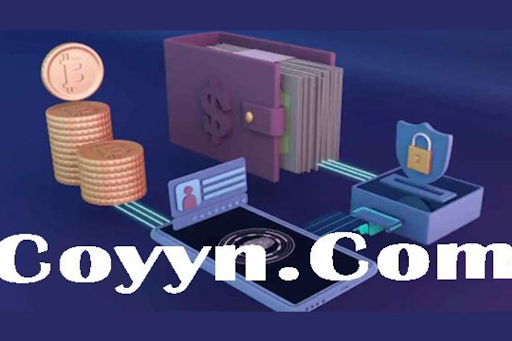The global financial system is undergoing a profound transformation, driven by the rise of digital assets. One prominent player in this evolution is Coyyn.com digital money, a concept that integrates modern financial technologies with traditional economic principles. As more individuals and businesses shift from physical cash to digital alternatives, understanding the types, uses, transaction mechanics, security features, and accounting protocols of Coyyn.com digital money becomes essential.
This in-depth guide will walk you through every major facet of Coyyn.com digital money—including how it works, how it’s reported, taxed, and converted, as well as how it’s secured. Whether you’re a crypto enthusiast, an investor, a business owner, or simply someone curious about the future of finance, this guide provides everything you need to know.
Understanding Coyyn.com Digital Money
Coyyn.com digital money represents a category of digital financial assets designed for transactions, investment, and long-term financial strategies. It encompasses cryptocurrencies, stablecoins, and central bank-issued digital tokens, each bringing its own value proposition. These digital forms of money are becoming central to the way we think about wealth, value transfer, and asset management.
Digital money is not just about convenience—it’s about control, efficiency, and new possibilities in a decentralized financial world. The key is to understand how each type functions and what role it plays in both personal finance and the broader economy.
Major Categories of Coyyn.com Digital Money
Digital money isn’t a single entity—it spans a spectrum of asset types. Each comes with specific accounting rules, regulatory frameworks, and use cases.
1. Cryptocurrencies: The Decentralized Backbone
At the core of the Coyyn.com digital money ecosystem are cryptocurrencies such as Bitcoin, Ethereum, and newer alternatives. These operate on decentralized networks using blockchain technology, ensuring transaction transparency and security without central authority.
However, the accounting for cryptocurrencies presents challenges. Under FASB (Financial Accounting Standards Board) guidelines, they’re treated as intangible assets, reported at historical cost with impairment testing. This makes profit/loss reporting complicated when markets are volatile.
Furthermore, the IRS (Internal Revenue Service) classifies them as property, not currency. This means any sale, exchange, or use may result in capital gains or losses, triggering tax obligations. Individuals and businesses using Coyyn.com digital money must therefore maintain precise records to comply with taxation standards.
2. Central Bank Digital Tokens (CBDTs): Trust and Regulation
National central banks issue and oversee CBDTs, in contrast to cryptocurrencies. They are essentially digital versions of a country’s fiat currency and are gaining traction worldwide. Countries like China are actively piloting versions like the digital yuan, offering efficiency, security, and lower transaction costs.
When integrated into the Coyyn.com digital money system, CBDTs bring a level of trust and governmental oversight. From an accounting perspective, they are typically treated as cash equivalents, simplifying balance sheet inclusion. However, as central banks tighten control, businesses and users must remain alert to evolving regulations and reporting standards.
3. Stablecoins: Bridging Fiat and Crypto
Another crucial component of Coyyn.com’s digital currency is stablecoins. Designed to reduce volatility, stablecoins like Tether (USDT) and USD Coin (USDC) are pegged to real-world assets such as the U.S. dollar.
Due to their stable nature, they are often used as a bridge between volatile crypto assets and traditional finance. Their hybrid nature creates classification challenges in accounting. Under IFRS (International Financial Reporting Standards), stablecoins may be recorded as financial instruments or cash equivalents depending on their design and redemption models.
Moreover, businesses using stablecoins must adhere to strict AML (Anti-Money Laundering) and KYC (Know Your Customer) protocols to prevent illicit activity and ensure audit transparency. Within Coyyn.com digital money systems, these practices are essential for regulatory compliance.
The Inner Workings: Coyyn.com Digital Money Transaction Mechanics
Digital transactions aren’t just swipes or scans—they’re complex sequences managed by advanced technology. The transaction journey in the Coyyn.com digital money ecosystem begins with digital wallets.
Wallets must support specific digital currencies and offer security through encryption and private keys. When a user initiates a transaction, the digital money is transmitted to the recipient’s wallet through a network of nodes.
Depending on the type of digital money involved, different consensus mechanisms are used. For instance:
- Bitcoin uses proof-of-work (PoW)
- Ethereum has transitioned to proof-of-stake (PoS)
These processes verify the transaction and ensure it’s recorded immutably on the blockchain or ledger. This verifiability is key to accounting and auditing, especially as financial authorities like the IRS require full disclosure of crypto-related activities.
Accounting and Financial Reporting for Coyyn.com Digital Money
One of the most complex aspects of Coyyn.com digital money lies in how it’s reported in financial statements. Businesses need to handle these digital assets carefully and precisely, from classification to taxation.
Balance Sheet Inclusion
Digital currencies are recorded as intangible assets, not cash. They are not amortized but require regular impairment testing. If a cryptocurrency’s market value drops below its book value, a write-down must occur—even if the value later recovers. This can cause major swings in financial reports.
Fair Value and IFRS
Fair value is the amount that would be obtained to sell an asset in a well-organised transaction, according to IFRS 13. Businesses managing large portfolios of Coyyn.com digital money must use market data and valuation tools to determine current asset worth and remain compliant with international accounting standards.
Tax Obligations
The IRS views digital currencies as taxable property, meaning:
- Every sale or trade triggers a tax event
- Long-term capital gains (assets held >1 year) can range from 0% to 20% based on income
- Full records of dates, costs, proceeds, and conversion values are essential
Using Coyyn.com digital money for business or investment must involve a tax strategy to avoid IRS penalties.
Digital Asset Security: Protecting Coyyn.com Digital Money
As digital money doesn’t reside in banks, securing it is crucial. Here are the top security features integrated into Coyyn.com digital money solutions:
- Multi-Signature Wallets: Require multiple users to approve a transaction, reducing fraud risk.
- AES-256 Encryption: One of the most secure encryption standards used globally for both storage and transaction protection.
- Cold Storage: Offline storage of digital assets to prevent hacks.
- Security Audits: Regular assessments of systems to detect vulnerabilities.
For both individuals and businesses, proactive security measures are not optional—they are a necessity in managing Coyyn.com digital money assets.
Converting Coyyn.com Digital Money into Fiat Currency
While digital currencies are useful for online ecosystems, real-world expenses still require fiat money. Conversion is a key function of Coyyn.com digital money.
Platforms like Coinbase, Binance, and OTC (over-the-counter) trading services facilitate the exchange of crypto to fiat (like USD or EUR). Timing the conversion is critical, especially for volatile assets like Bitcoin. Businesses might convert when rates are favorable to lock in profits.
However, it’s not just about exchange rates—fees, tax implications, and reporting are equally important. Conversions impact:
- Income statements (via gains/losses)
- Cash flow statements (via inflows/outflows)
- IRS reporting (capital gains reporting)
Advanced accounting software with crypto-integration features can help automate and streamline this process for users of Coyyn.com digital money.
FAQs About Coyyn.com Digital Money
Q1: What is Coyyn.com digital money?
A: Coyyn.com digital money refers to a collection of digital financial assets, including cryptocurrencies, stablecoins, and central bank tokens, used for transactions, investment, and financial reporting.
Q2: How is Coyyn.com digital money taxed?
A: It is taxed as property by the IRS. Gains from selling, exchanging, or using digital money may result in capital gains tax.
Q3: Are Coyyn.com digital money transactions secure?
A: Yes, through advanced encryption, multi-signature wallets, and secure blockchain technology, Coyyn.com digital money maintains a high level of security.
Q4: Can I convert Coyyn.com digital money to real currency?
A: Absolutely. You can use cryptocurrency exchanges or OTC platforms to convert to fiat like USD or EUR.
Q5: How is Coyyn.com digital money recorded in accounting?
A: It’s generally reported as an intangible asset under FASB standards, with impairment testing and detailed record-keeping required for tax and financial compliance.
Final Thoughts
As we move toward a digitally dominated financial future, Coyyn.com digital money is becoming an essential tool for both individuals and businesses. Understanding the types of digital assets, transaction processes, accounting standards, and tax implications allows for more informed financial decisions. While digital money presents some complexity, it also offers unmatched flexibility, efficiency, and transparency.
Whether you’re investing, transacting, or preparing financial statements, staying informed on the ins and outs of Coyyn.com digital money will position you for long-term success in the evolving economy.
Stay in touch to get more updates & news on Hoseasons!

